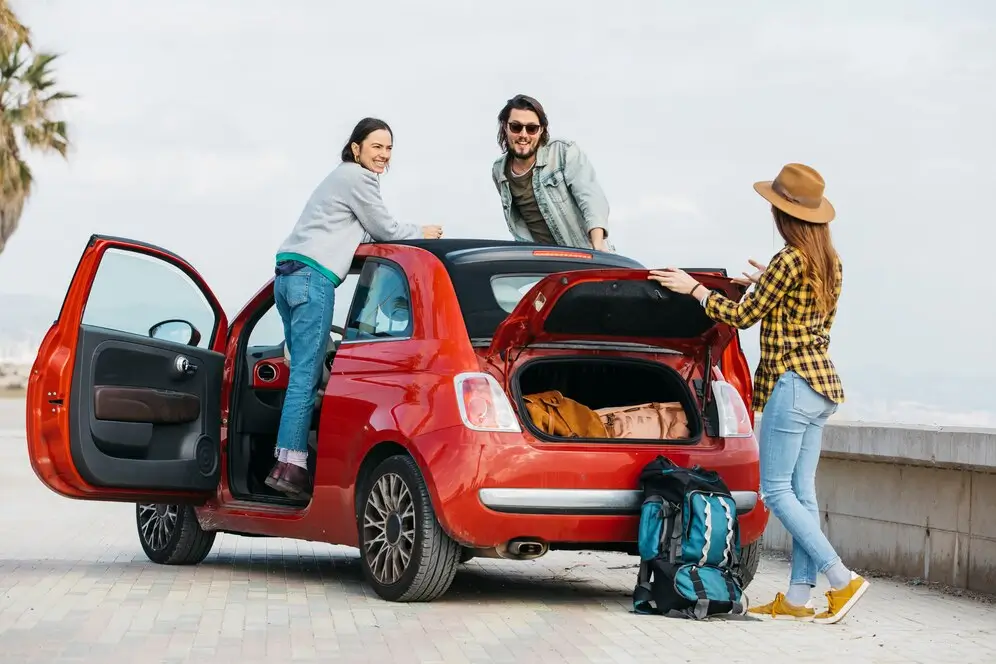Spirit Of Change: Gen Z Pioneers Sober Tourism, Redefining Travel Experiences
In recent years, a transformative shift has taken place in the world of travel, marking the rise of a new trend known as “sober tourism.” Traditionally, travel has been synonymous with indulgence, relaxation, and often, the enjoyment of alcoholic beverages.
Table of Contents
However, a growing number of young travelers from Generation Z are redefining the travel experience by choosing destinations and activities that cater to a sober lifestyle.
This phenomenon reflects a broader cultural shift toward health and wellness, sustainability, and a desire for authentic, meaningful experiences.
The Rise of Sober Tourism:
Sober tourism can be defined as a travel trend that focuses on destinations and activities that do not involve the consumption of alcohol.
While it may seem counterintuitive in a world where vacation often conjures images of beachside cocktails and lively nightlife, this trend is gaining traction, particularly among the younger generation.
Gen Z, born between the mid-1990s and early 2010s, is at the forefront of this movement, challenging conventional notions of travel and leisure.
Health and Wellness as a Driving Force:
One of the primary drivers behind the sober tourism trend is the increasing emphasis on health and wellness among young travelers. Gen Z is a generation that prioritizes physical and mental well-being, and this extends to their travel choices.
Sobriety aligns with their commitment to a healthy lifestyle, fostering a travel experience that promotes overall well-being.
As awareness of the negative effects of excessive alcohol consumption grows, more young travelers are seeking alternatives that allow them to explore new destinations while maintaining their commitment to a healthy lifestyle.
Sober tourism provides an avenue for individuals to focus on activities that nurture their physical and mental health, such as yoga retreats, wellness spas, and outdoor adventures.
Authentic Experiences and Cultural Immersion:
For Gen Z, travel is about more than just ticking off bucket-list destinations. Authenticity and cultural immersion play a crucial role in shaping their travel preferences.
Sobriety often enhances the ability to engage with local cultures on a deeper level, as travelers are fully present and attuned to their surroundings.
Sober tourism encourages participation in activities that showcase the rich tapestry of local communities, from culinary experiences and traditional arts to historical tours and community service projects.
By opting for alcohol-free adventures, travelers can forge meaningful connections with locals, gaining insights into the authentic fabric of a destination.
Environmental and Social Responsibility:
Another factor driving the sober tourism trend among Gen Z is a heightened awareness of environmental and social issues. Sustainable and responsible travel practices are becoming increasingly important for this generation.
Alcohol production and consumption contribute to environmental degradation, from the cultivation of raw materials to packaging and transportation.
By choosing destinations and activities that eschew alcohol, young travelers can align their vacations with their values of sustainability and environmental responsibility.
Sober tourism allows them to reduce their ecological footprint while supporting local communities that may be adversely affected by the negative consequences of alcohol-related tourism.
Challenges and Opportunities for the Tourism Industry:
The sober tourism trend presents both challenges and opportunities for the tourism industry. Traditional travel destinations and businesses heavily reliant on alcohol-related revenue may need to adapt to changing consumer preferences.
However, this shift also opens up new possibilities for businesses to diversify their offerings and cater to the growing market of sober travelers.
Accommodations, tour operators, and restaurants that embrace the sober tourism trend can differentiate themselves in a competitive market.
Creating tailored experiences, from alcohol-free cocktail menus to wellness-focused packages, can attract a demographic that is increasingly seeking alternative travel options.
Conclusion:
As the sober tourism trend gains momentum, it reflects a broader shift in societal values, particularly among the younger generation. Gen Z’s commitment to health and wellness, authentic experiences, and environmental responsibility is reshaping the travel landscape.
The rise of sober tourism signals a departure from traditional notions of travel, challenging the industry to adapt and evolve. In doing so, it opens up new horizons for a generation that seeks travel experiences that align with their values and contribute to personal growth and global well-being.

